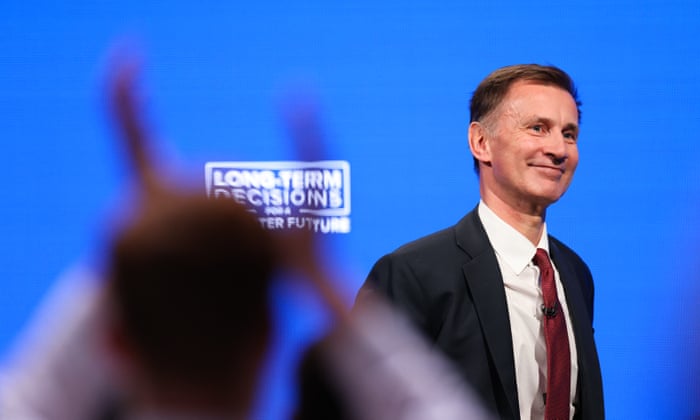
A beleaguered political party in a freefall spiral is shedding its remaining shreds of sanity. Following by-elections that have left no parliamentary seat feeling secure, Tory MPs are shrieking in desperation. They oscillate between right turns and pull the tax-cut joystick, while the chancellor, it’s rumored, is contemplating the eject button. As they hurtle towards political oblivion, the party discards the cunning pretenses employed by leaders like David Cameron and Boris Johnson to mask the unsavory aspects of their party. In the grip of panic, their true nature stands exposed.
The party’s measures appear remarkably misguided, accelerating their descent. MPs and their media allies are clamoring for tax cuts while advocating for yet more cuts to benefits. The Telegraph editorial implores the prime minister to be bold and calls for curbing the benefits bill and the so-called “out-of-control welfare state.”
In the upcoming autumn statement, Jeremy Hunt is expected to set benefit levels for the following April. However, there is growing anticipation of another freeze or a rise that doesn’t match inflation, effectively constituting a real-terms cut. Unemployment benefits have already fallen by 9% since 2010, with the UK offering the lowest unemployment pay in Western Europe, providing only 17% of previous in-work income. In contrast, France and Germany provide 66%, while Belgium offers 90%.
The question arises: Is tightening the screws on welfare a winning strategy? No longer, as recent surveys indicate a seismic shift in public sentiment. The British Social Attitudes survey, consistent for 40 years, reveals a substantial change in public sympathy for households facing poverty. Only 19% now agree with the statement that “Most people who get social security don’t really deserve any help,” a significant shift from 2005 when the figure was 40%.
Poll after poll reaffirms this shift: three-quarters of voters, including 69% of Tory voters, want benefits preserved. Proposals to cut taxes for the wealthiest by raising the top-rate taxpayer threshold and other tax cuts targeting the better-off are gaining momentum, despite their potential to impact low-income families adversely.
A tone-deaf group of MPs is calling for the abandonment of the renters reform bill, threatening to rebel against tenant protection from no-fault eviction. This divisive stance reveals a disconnect from the evolving political landscape. As the Tories obsess over their own interests and ignore pressing public concerns, they risk alienating a wide spectrum of the population. It is a path to political isolation, one that may take years to recover from.
Labour may not vocalize it, but 2024 could signify more than a typical pendulum swing. Something seismic is afoot as the public increasingly recognizes the significance of a robust state following events like the financial crisis, the pandemic, and the energy price crisis. A damaged public realm and growing empathy for low earners, combined with disdain for excessive wealth, are reshaping the political mindset.
The tide is turning against the individualism of Thatcherism, with voters repelled by austerity gravitating toward social democracy. The Tory party has failed to grasp this shift, misled by its own press. By-elections reveal a country moving away from austerity and closer to a social democratic vision.









